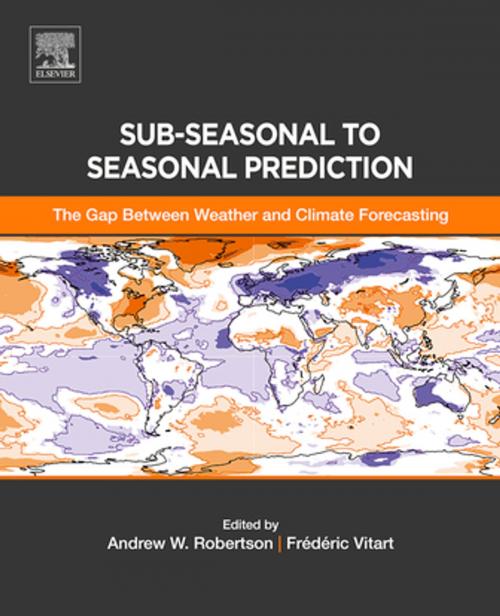Sub-seasonal to Seasonal Prediction
The Gap Between Weather and Climate Forecasting
Nonfiction, Science & Nature, Science, Other Sciences, Meteorology, Biological Sciences, Environmental Science| Author: | ISBN: | 9780128117156 | |
| Publisher: | Elsevier Science | Publication: | October 19, 2018 |
| Imprint: | Elsevier | Language: | English |
| Author: | |
| ISBN: | 9780128117156 |
| Publisher: | Elsevier Science |
| Publication: | October 19, 2018 |
| Imprint: | Elsevier |
| Language: | English |
The Gap Between Weather and Climate Forecasting: Sub-seasonal to Seasonal Prediction is an ideal reference for researchers and practitioners across the range of disciplines involved in the science, modeling, forecasting and application of this new frontier in sub-seasonal to seasonal (S2S) prediction. It provides an accessible, yet rigorous, introduction to the scientific principles and sources of predictability through the unique challenges of numerical simulation and forecasting with state-of-science modeling codes and supercomputers. Additional coverage includes the prospects for developing applications to trigger early action decisions to lessen weather catastrophes, minimize costly damage, and optimize operator decisions.
The book consists of a set of contributed chapters solicited from experts and leaders in the fields of S2S predictability science, numerical modeling, operational forecasting, and developing application sectors. The introduction and conclusion, written by the co-editors, provides historical perspective, unique synthesis and prospects, and emerging opportunities in this exciting, complex and interdisciplinary field.
- Contains contributed chapters from leaders and experts in sub-seasonal to seasonal science, forecasting and applications
- Provides a one-stop shop for graduate students, academic and applied researchers, and practitioners in an emerging and interdisciplinary field
- Offers a synthesis of the state of S2S science through the use of concrete examples, enabling potential users of S2S forecasts to quickly grasp the potential for application in their own decision-making
- Includes a broad set of topics, illustrated with graphic examples, that highlight interdisciplinary linkages
The Gap Between Weather and Climate Forecasting: Sub-seasonal to Seasonal Prediction is an ideal reference for researchers and practitioners across the range of disciplines involved in the science, modeling, forecasting and application of this new frontier in sub-seasonal to seasonal (S2S) prediction. It provides an accessible, yet rigorous, introduction to the scientific principles and sources of predictability through the unique challenges of numerical simulation and forecasting with state-of-science modeling codes and supercomputers. Additional coverage includes the prospects for developing applications to trigger early action decisions to lessen weather catastrophes, minimize costly damage, and optimize operator decisions.
The book consists of a set of contributed chapters solicited from experts and leaders in the fields of S2S predictability science, numerical modeling, operational forecasting, and developing application sectors. The introduction and conclusion, written by the co-editors, provides historical perspective, unique synthesis and prospects, and emerging opportunities in this exciting, complex and interdisciplinary field.
- Contains contributed chapters from leaders and experts in sub-seasonal to seasonal science, forecasting and applications
- Provides a one-stop shop for graduate students, academic and applied researchers, and practitioners in an emerging and interdisciplinary field
- Offers a synthesis of the state of S2S science through the use of concrete examples, enabling potential users of S2S forecasts to quickly grasp the potential for application in their own decision-making
- Includes a broad set of topics, illustrated with graphic examples, that highlight interdisciplinary linkages















